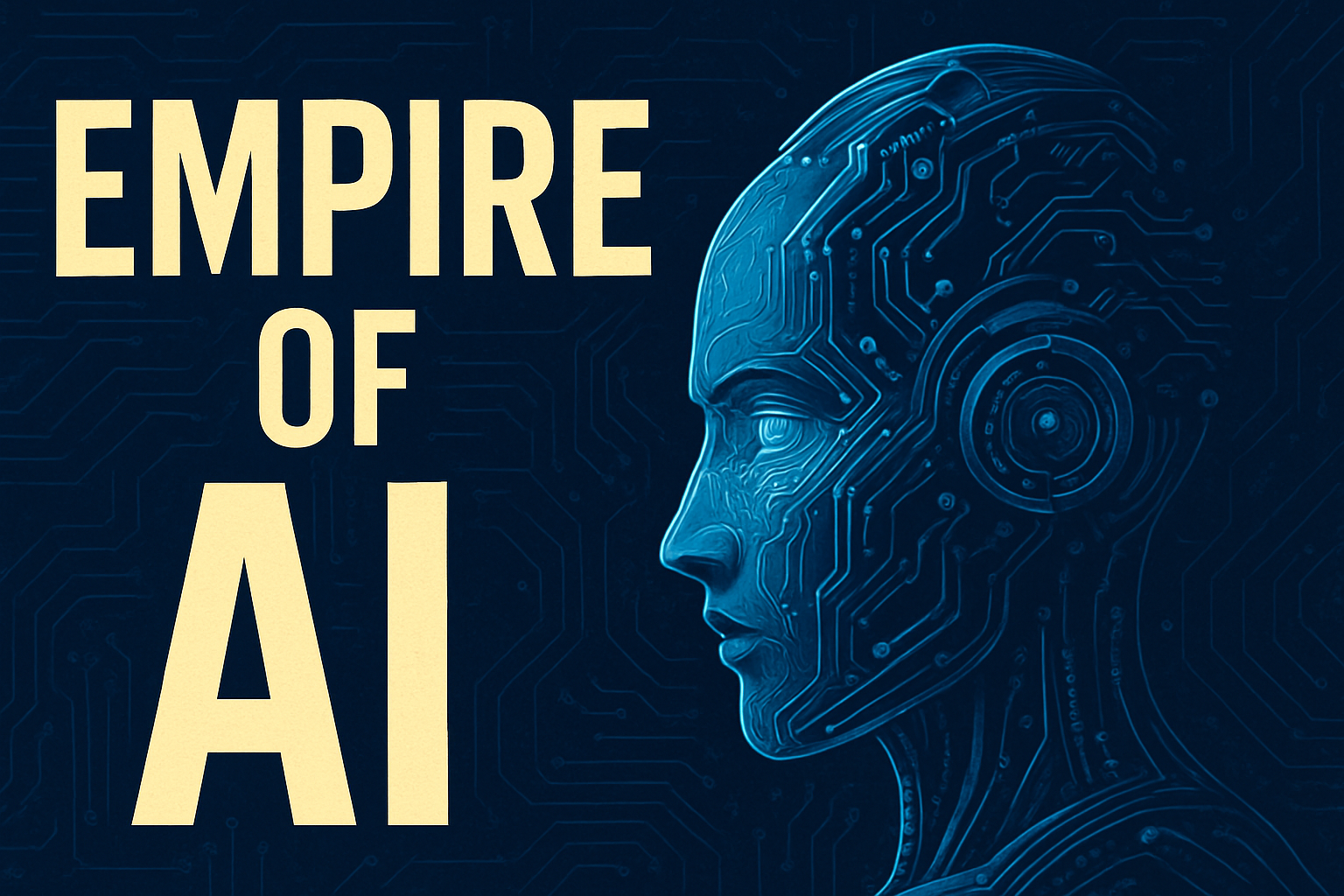Empire of AI : The Rise of Machines and the Fall of Old Powers
- By Broadcast India
- 7th August, 2025 04:51 PM

Introduction: The Empire You Didn't Vote For
Empires throughout history have risen through conquest, innovation, or ideology. From Rome to the British Raj, from capitalism to communism—empires have always shaped how people live, think, and evolve.
But today, we are witnessing the birth of a new empire—one that has no geographic borders, no national flag, no elected leader. It is the Empire of Artificial Intelligence (AI), and its rulers are lines of code running in unseen data centers across the world.
Unlike traditional empires, AI doesn't march with armies—it operates silently through your smartphone, bank account, search engine, and surveillance camera. It influences your choices, habits, employment, and even your thoughts.
This blog explores how AI has become the dominant force of the 21st century, the risks it carries, the opportunities it offers, and what it means for the future of human civilization.
AI as the New Superpower
In the 20th century, superpowers were measured by nuclear weapons and GDP. In the 21st century, they are measured by data, compute power, and algorithms.
Consider this:
- Google, Amazon, Open AI, and Tencent may hold more global influence than many countries.
- Countries like China, USA, and India are investing billions into AI infrastructure, hoping to dominate the data economy.
- AI is powering everything from military drones to stock markets, healthcare diagnostics to criminal surveillance.
AI is not just a technology anymore; it is governance, commerce, military strategy, and culture. We are no longer in the age of information—we are now in the age of intelligent systems that interpret and control that information.
The New Class Hierarchy: Coders, Data, and the Dispossessed
The AI empire is creating new social classes:
- The Architects
Coders, engineers, and researchers who design and control powerful models like GPT, Gemini, Claude, or Meta AI. They are the empire’s high priests—designing the systems that decide what is visible, profitable, or censored. - The Data Barons
Tech companies that own the largest data lakes—Google, Amazon, Facebook, Alibaba. Data is the oil of the empire, and they control the pipelines. - The Digital Citizens
Everyday users who benefit from AI—getting better recommendations, faster access to information, smarter devices. - The Left Behind
Workers displaced by automation. Entire job categories—call center agents, clerks, drivers, even writers—are under threat.
This class system is global and transcends borders. A student in Nigeria may have more AI access than a rural farmer in France. A coder in India may shape an American algorithm. The old rules of power and privilege are collapsing.
Autocrats or Algorithms: Who Rules?
One of the most chilling aspects of the AI empire is its opacity. Algorithms make decisions—but who audits them? Facial recognition decides who enters a building. Credit scoring algorithms approve or deny loans. AI filters decide which content gets amplified or suppressed.
What happens when an AI wrongly accuses someone? Or when predictive policing unfairly targets communities? As power shifts from governments to technological systems, transparency and accountability become urgent demands.
Are we creating an empire where we don't know who’s in charge?
The Rise of AI Nationalism
Global competition over AI is intensifying. We are entering an era of AI nationalism where countries seek to:
- Protect their data sovereignty
- Build domestic AI models
- Ban or regulate foreign AI tools
India is building its own foundation models. The EU is drafting strict AI regulations. China is racing to compete with the U.S. on generative AI dominance.
AI is no longer just technology; it's geopolitical infrastructure.
The Ethical Crisis: Can Empires Have Morality?
The AI empire faces a moral crisis.
- Bias: AI systems trained on flawed data can reinforce racism, sexism, and inequality.
- Surveillance: In the wrong hands, AI enables authoritarianism at an unprecedented scale.
- Disinformation: Deepfakes, fake news, and AI-generated propaganda threaten democracy.
- Consent: Most people never agreed to have their data used for training powerful models.
Who ensures fairness? Who protects human rights? Who regulates the empire?
Even the creators of AI (like Open AI’s own researchers) have raised alarm bells about the risks of uncontrolled AI growth—including loss of human autonomy and existential threats.
Utopia or Dystopia? The Dual Face of the Empire
Despite the risks, the Empire of AI is not all doom and gloom. It also offers unparalleled opportunities:
- Healthcare: Early diagnosis, personalized treatment, drug discovery
- Climate Change: AI-driven modeling, energy efficiency, smart agriculture
- Education: Personalized tutoring, access for underserved populations
- Creativity: New art, music, literature, games, and innovation tools
AI has the power to liberate humanity from menial labor, unleash creativity, and accelerate progress.
But it must be used with caution, governance, and inclusivity.
Can We Democratize the AI Empire?
The future depends on whether we let a handful of companies and governments control AI—or whether we build open-source, equitable, and decentralized alternatives.
Steps toward democratization could include:
- Public oversight of AI systems
- Stronger international cooperation
- Ethics-first development
- Inclusive AI education
- Rights to opt-out or control data usage
We need AI for the many, not the few—or this empire will become another oppressive chapter in history.
Conclusion: The Age of the Algorithm Has Begun
Empires rise and fall. But the Empire of AI is still in its dawn. Whether it becomes a tool of tyranny or a pillar of progress depends on the decisions we make now—as citizens, developers, policymakers, and storytellers.
We didn’t vote for this empire, but we can still shape its constitution.
The question isn’t whether AI will rule our world.
The question is: Will we still have a say in how it rules us?






